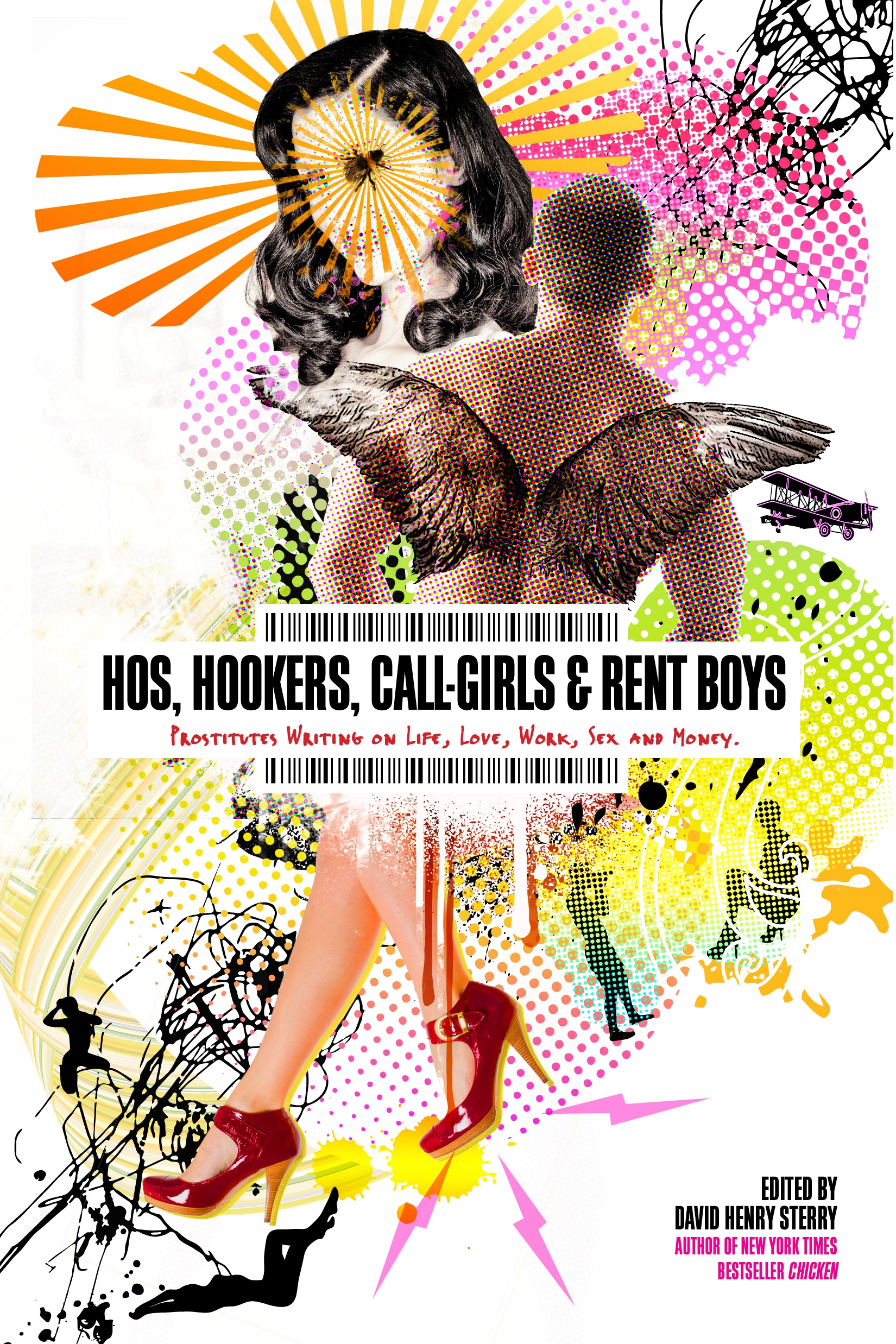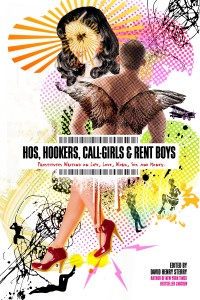
Purchase the BookPaperback : Amazon.com | Barnes & Nobles | Indiebound | Softskull | Powells Discuss the Book |
Hos, Hookers, Call Girls and Rent Boys featured on the cover of the Sunday New York Times Book Review. Written by Toni Bentley. To buy the book click here.
“An eye-opening, occasionally astonishing, brutally honest and frequently funny collection from those who really have lived on the edge in a parallel universe…unpretentious and riveting — but don’t worry, their tales are also graphic, politically incorrect and mostly unquotable in this newspaper…” “Lele,” a piece by Jodi Sh. Doff, who “grew up in the suburbs as someone else entirely,” recalls Henry Miller’s in-your-face exposition. She tells of a night at Diamond Lil’s on Canal Street, where “Viva’s sitting onstage, legs spread wide.” While her customer is buried and busy, she holds a cigarette in one hand, a drink in the other, and chitchats with a girlfriend about another girlfriend. “Every two minutes or so Viva taps him on the head and he hands her a 20 from a stack of bills he’s holding, never looking up.” We see in this wonderful set piece the whole money/sex connection enacted with raw charm and an immediacy that reaches far beyond this strip club, as the man’s stack of 20s, one by one, becomes hers. Multitasking Viva holds them “folded lengthwise in her cigarette hand.” “Very brave, very moving.” “This collection is a wonderful reminder that good writing is not about knowing words, grammar or Faulkner, but having that rare ability to tell the truth, an ability that education and sophistication often serve to conceal. While we are all, I suppose, in the business of surviving, some really are surviving more notably than others. The collective cry for identity found in this unsentimental compilation will resonate deeply — even, I suspect, with those among us who pretend not to pay for sex.” – New York Times “Sterry — who has written a number of other books, such as “Chicken: Self-Portrait of a Young Man for Rent” and “Unzipped: A True Story of Sex, Drugs, Rollerskates and Murder” — spoke with Express about his idea for the collection, America’s most commonly held misconceptions about the sex industry and whether the book should go in the ‘entertainment’ or the ‘educational’ portion of your bookcase.” –Express interview in the Washington Post “’Hos, Hookers, Call Girls and Rent Boys: Professionals Writing on Life, Money and Sex’ is graphic in nature, but full of raw, unfiltered and enlightening tales regarding a side of life not many want to know about; the sex trade. What’s so fascinating and downright addicting is that many of the entries are from individuals one would wrongfully assume to be illiterate, stupid or unworthy to hear from. While proving the stereotype wrong, each contributor delivers his or her side of a lifestyle with poise, passion, nuance and heart. Real and undeniably shocking, “Hos, Hookers, Call Girls and Rent Boys…” made its debut to encore readers last winter, and I haven’t been able to get it out of my head since. So, it’s one of the most impacting reads yet to strike my world. It widened my eyes, opened my heart and oddly made me want to listen to Madonna’s “Human Nature”—and that’s a good thing.” -Tiffanie Gabrielse, Top Five Reads: Tiff ranks her fave favorite page-turners Encore Online “This kaleidoscopic portrait of sex work in America is all the more striking for its breadth.” –SF Weekly “The sprawling project offers insight into seemingly all aspects of the sex trade: high-profile celebrities like Xaviera “Happy Hooker” Hollander and Nina Hartley make notable contributors, but it’s the unknown writers who will stick. The selections from the book’s closing section alone, written by members of a writer’s workshop for sex workers, range from triumphant to harrowing, making up for a lack of style or form with passion. Aside from exposing the complex web of relationships among phone sex operators, dancers, massage parlor workers, prostitutes and their customers, the book is heavy with raw emotions ranging from celebratory to shameful, giving armchair sociologists plenty to ponder. It’s not all dark and heavy: Sterry’s own account of his experience as a birthday present for an 82-year-old grandmother is touching and sentimental; veteran performer Annie Sprinkle is characteristically blunt, funny and honest. This volume houses some real gems.” – Publishers Weekly “The prose in this volume is fresh and the tales are both heart-rending and hilarious, sometimes simultaneously. What’s most striking about the volume is how relevant these intimate and detailed chronicles are for any reader, whether they’ve sold their bodies or just their souls. It’s not just about sex. Rather than ghettoizing prostitutes, strippers and porn actors, editors David Henry Sterry and R.J. Martin have brought together essays from a broad sampling of sex workers, keeping it balanced. There are gripping accounts of writers who struggle to pay bills and get their lives together, who have families, who are human beings. How this crew differs from the straights is they all opted for sex work rather than a drone job.” – New York Press “In these dark days of brokedom, who amongst us hasn’t lingered a bit too long in the Etc. section of the Craigslist job postings? I mean, I do have dainty feet with nicely trimmed toenails, and if I could make my rent just by stepping on some random businessman’s face, well who’s to judge?? Granted, I am not brave enough (or hard up enough) to go through with such an evening’s work (just yet), but the selection of writers featured in the anthology, Hos Hookers, Call Girls, And Rent Boys were not only brave enough to do it, and keep doing it, but were equally brave enough to write about it. The first hand accounts, interviews, and poems featured in this book are so well written and organized, that the fact that they all center around the exchanging of sex for money falls into the background, and what’s left is an intimate offering of on-the-job gossip and late night horror stories that have you wanting to spend more time with the writer than the three or four pages a pop you’re given with each one.” – Kelly McClure, Bust Magazine “In a reading that brought down the house at Busboys and Poets, Sterry’s rendition of “I Was a Birthday Present for an Eighty-Two-Year-Old Grandmother” was both incredibly funny and a fascinating anti-ageist commentary on the things we’re all afraid to ask for (namely, women asking for oral sex).” – Allison McCarthy, Womanist Musings “Sterry and Martin have managed to bring together a crazy quilt of essays, and work the fabric of the anthology into a rich tapestry… Some of the narratives are polished and savvy, some are as hard and rough as drug addiction that dogs a body and soul. Others reveal a tarnished realism about the painful truths of being in the life. The most compelling are those which give voice to the most vulnerable, in the chapter written by sexually exploited youth. Helping Daddy Pay the Rent is a devastating indictment of societal neglect and despicable acts of parental desperation combust in one abused child that will tear at your heart… The writing is diverse and eclectic, a mirror into the nature of the industry itself. Sex workers with advanced academic degrees, porn stars and anonymous phone operators, exotic dancers in various states of gender and undress, have more in common than sex for money; they are united in their courage to tell their stories. They unabashedly relate their emotions, actions and reactions, in situations from victimization to domination, hunger to satiation; size twelve stiletto wearing cross dressers, full body massage providers, plaster casted exhibitionists all tell their tales in gripping first person I-live(d)-it-so-there’s-no-sugar-coating-it manner. Hearts, heads and other assorted body parts, seedy strip joints, broken down bars and spirits, upscale hotels and high rollers are exposed with unflinching candor and gritty authenticity, bringing to light the world of industrial sex workers. This book is more than an interesting and affecting read. In its entirety, in its insistence that the gamut of personal histories about sex/money/power/frailty is a reflection of the human condition, it speaks to a broad audience. A bit of paraphrasing may serve to place the content in its most valuable context: Roman philosopher, Terence, said nothing in humanity can be alien to man; and renowned psychoanalyst Carl Jung said that light is revealed by uncovering shadow. HHCG&RB presents the universality of ancient archetypal themes playing out in modern day scenes, and in doing so, uncovers shadow for all.” –Barnes & Noble.com “Hos, Hookers, Call Girls and Rent Boys is an extremely valuable and necessary book, not because it tells you what your perspective ought to be, but because it provides more perspectives than pretty much any other book on the topic. It covers more ground than I would have imagined possible. What I love is the fact that, for once, so many different voices are represented within the same space…I can’t help but feel that it should be required reading… precisely because it addresses, head-on, so many of the issues and schisms that have kept those conversations stalled for so long.” – Tiger Beatdown “There’s something unique about being a member of the sex worker club, an instant camaraderie that bonds one to people who would otherwise be strangers, and this chemistry is something of which Sterry can’t get enough. You might be one of those people who doesn’t believe that sex workers are interesting. You may downright resent the cultural fascination with those who take money to titillate and masturbate strangers. Maybe you’re convinced that the only thing these men and women have going for them are passable looks and a wildly miscalibrated moral compass, and that paying attention to their déclassé life of the body glamorizes underachieving and turpitude. |
Excerpts |
Featured Books by David Henry Sterry
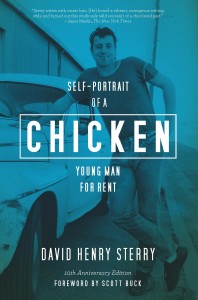 |
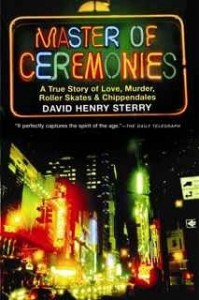 |
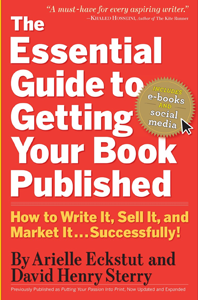 |
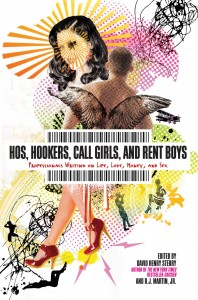 |
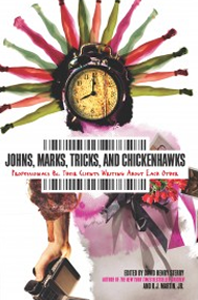 |
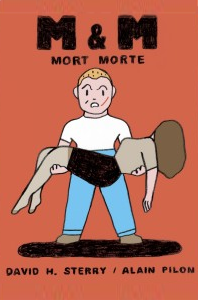 |
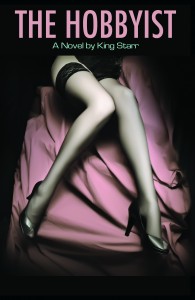 |
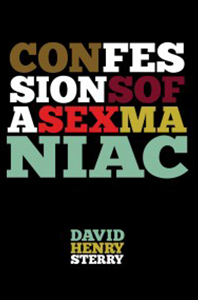 |

